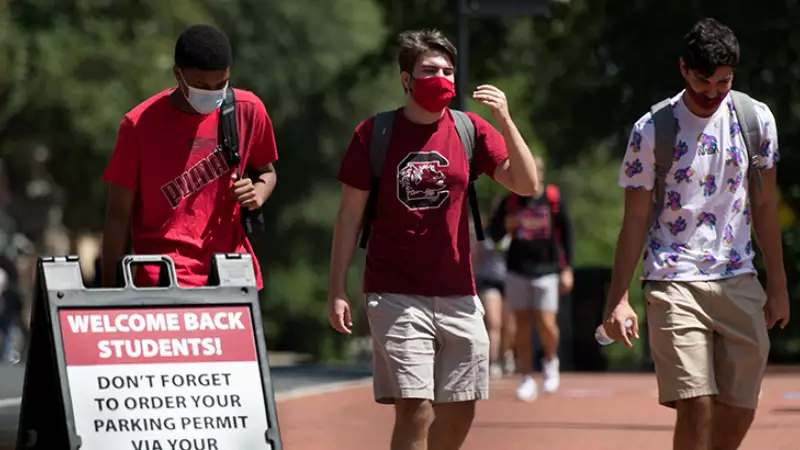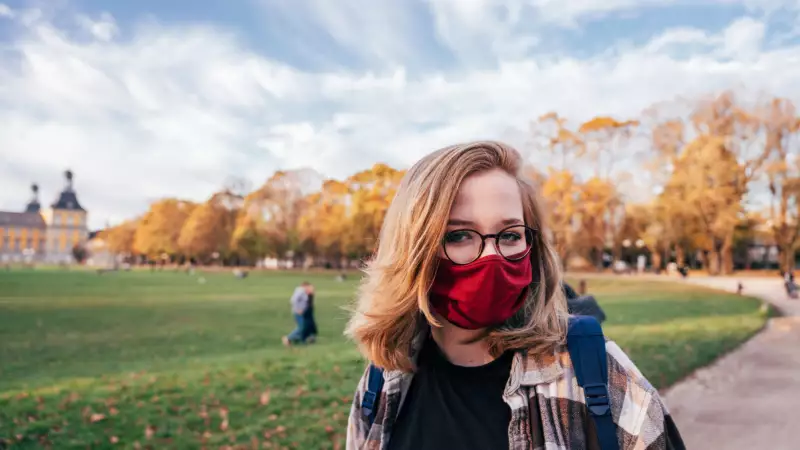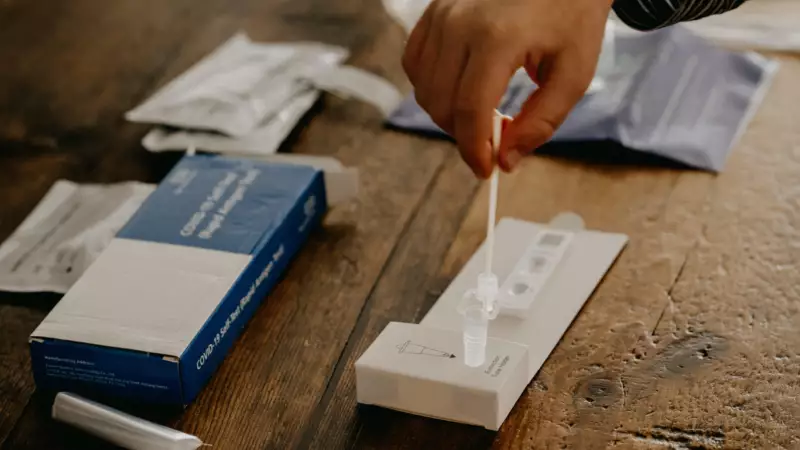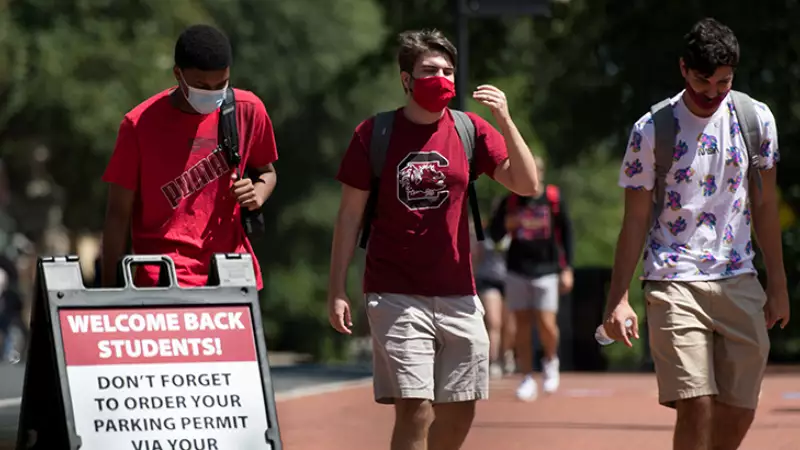AUGUST 17, 2021 | OPEN LETTER TO AMERICA’S HIGHER EDUCATION LEADERS
Creating #COVIDSafeZones at America’s Colleges & Universities
Dear Higher Education Leaders:
We applaud your leadership in addressing health and safety throughout the COVID-19 pandemic. The layered prevention strategies you have advanced over the past 18 months have been critical to preserving your institutions’ academic and research missions. Most sobering, they have saved lives.
As many campuses prepare to open for Fall 2021 in just a few days, we recognize the great progress our nation’s colleges and universities have made to reduce COVID-19 on campuses and in their surrounding communities. The highly communicable Delta variant, however, is disrupting thoughtful plans for returning to campus, and higher education leaders will need to adjust and pivot rapidly, just as they have throughout the pandemic. At the same time, the full FDA approval of the Pfizer vaccine appears to be imminent. Taken together, these two developments stand to change the fall COVID landscape in higher education and throughout the nation.
We are seeking your help. Institutions of Higher Education (IHEs), which employ over 3 million individuals and are attended by over 19 million students, must continue to pull together. College campuses, by their nature, are high-risk congregate settings for infectious disease transmission. People not protected by vaccines are becoming infected faster, from more limited contact. The Delta variant represents a more dangerous threat to your campus health and safety, operational continuity, and ability to meet the safety expectations of faculty, staff, students, and their parents. Last year’s plan may not prevent outbreaks from this year’s variant. Delta is different.
This is why we, public health and science experts, leaders in health, education, and civil society, and former officials from both political parties, have come together to ask you to join us in taking further steps to maintain public health and safety, prevent spread, and keep your institutions open for student learning.
We are asking you to require vaccination. A vaccination requirement is the best way to protect students, faculty, staff and the community around your campus. Over 700 IHEs have already decided to require vaccination this fall, most with medical and religious exceptions available. Where state law and available resources allow, the American College Health Association strongly recommends a campus vaccination requirement. If your campus has a health care setting, vaccination is particularly important for anyone who comes in contact with patients. In addition, high vaccination rates provide a greater assurance of safety in other high-risk settings, where distancing or reduced contact is difficult to achieve, including residence halls and classrooms.
For those colleges and universities that are unable or choose not to require vaccination, we are asking leaders to take strong steps to get as close as possible to 100 percent of their students, faculty and staff vaccinated early in the academic year.
For all colleges and universities, we also encourage steps to make vaccination easy. Set up pop-up vaccine clinics to meet students as they return to campus, including move-in, orientation, football games and tailgates, and at student life events. Offer paid leave for staff and faculty to get vaccinated and in the event of side effects. Engage with your student leaders to get word out about vaccination to other students. Start a student ambassador program using the ACHA toolkit here. Peer-to-peer engagement is one of the best ways to achieve behavior change in young adults.
Please use layered mitigation strategies to keep your students, faculty, and staff safe as they return:
- Screen for Infection. Particularly for unvaccinated individuals, require a protocol for employees and students to be routinely screened with a rapid COVID-19 test, typically twice weekly. More frequent testing should be done in higher-risk settings where appropriate and practical.
- Track Vaccination Status. As many of you have shared with us, tracking the vaccination status of your campus population, including an attestation component, is critically important and allows an IHE to calculate community immunity and adjust the campus response accordingly.
- Encourage Mask Use. Mask use should follow the latest CDC recommendations, which currently advise face coverings in public indoor settings in substantial or high prevalence zones, including for vaccinated individuals.
- Plan to Pivot. As most of you have already done or are currently doing, campuses must re-visit 2020 strategies and adapt them for rapidly evolving fall 2021 situations. As in 2020-21, ensure that you have the right people at the table and let the data drive your decisions. If you are looking for additional resources, please consult the comprehensive American College Health Association (ACHA) considerations for re-opening in Fall 2021.
These #COVIDSafeZones strategies are not a broad vaccination mandate. While we support maximized vaccination, we believe that these strategies are consistent with established public health precedent and can be highly beneficial, even in the face of state laws that prohibit broad vaccination requirements in higher education settings.
We recognize that any protocols create burdens and costs for IHEs and their students, faculty and staff. Still, higher education leaders also realize the significant cost of ongoing disruption and uncertainty in campus operations and in people’s lives. With your leadership, we will beat this pandemic. Higher education leaders continue to have a critical role in protecting the health and safety of people who work, live, and play on campus as well as members of the surrounding community. We believe these strategies, together with the important steps you are already taking, can achieve a balance of respect for campus safety and individual liberty. We pledge to join with you as we move our country forward together.
Signed By
Jerome M. Adams
20th Surgeon General of the United States
Barbara D. Alexander
President, Infectious Diseases Society of America; Professor of Medicine and Pathology, Duke University
Melody C. Barnes
Fmr. Director, White House Domestic Policy Council
Georges C. Benjamin
Executive Director, American Public Health Association
David Brailer
Fmr. National Coordinator for Health Information Technology
John Bridgeland
Co-Founder & CEO, COVID Collaborative; Fmr. Director, White House Domestic Policy Council
Robert M. Califf
Prof. of Cardiology, Duke School of Medicine; Fmr. FDA Commissioner
Richard Carmona
17th Surgeon General of The United States; Distinguished Professor University of Arizona
Raymond G. Chambers
Co-Founder, COVID Collaborative; WHO Ambassador for Global Strategy
Tom Daschle
Fmr. U.S. Senator (D-SD); Fmr. Senate Majority Leader
Carlos del Rio
Professor, Emory University School of Medicine; International Secretary, National Academy of Medicine
Karen DeSalvo
Fmr Asst Secy for Health (Acting), Natl Coordinator for HIT, and New Orleans Health Commissioner
Mark Dybul
Co-Director, Georgetown Center for Global Health & Impact; Fmr. ED, Global Fund for AIDS, Malaria, TB; Fmr. U.S. Global AIDS Coordinator
Gary Edson
President, COVID Collaborative; Fmr. Deputy National Security Adviser
Joycelyn Elders
15th Surgeon General of the United States
Ezekiel J. Emanuel
Vice Provost for Global Initiatives, Co-Director, Healthcare Transformation Institute, Levy University Professor, Perelman School of Medicine and The Wharton School, University of Pennsylvania; Fmr. Special Advisor on Health Policy, Office of Management and Budget and National Economic Council
Tom Frieden
President & CEO, Resolve to Save Lives; Fmr. Director, CDC
William H. Frist
Fmr. U.S. Senator (R-TN); Fmr. Senate Majority Leader
Monica Gandhi
Professor of Medicine and Associate Division Chief, University of California San Francisco / San Francisco General Hospital
Scott Gottlieb
Resident Fellow, American Enterprise Institute; Fmr. FDA Commissioner
Margaret (Peggy) Hamburg
Fmr. FDA Commissioner; Fmr. Foreign Secretary of the National Academy of Medicine
Ashish Jha
Dean, Brown University School of Public Health
Vanessa Kerry
Director of Public Policy and Social Change, Harvard Medical School
Rebecca Katz
Professor and Director Center for Global Health Science and Security, Georgetown University
Mike Leavitt
Fmr. U.S. Secretary of Health & Human Services; Fmr. Governor & U.S. Senator (R-UT)
Mark McClellan
Dir, Duke-Margolis Center for Health Policy; Fmr. FDA Commissioner & Adm, Center for Medicare & Medicaid Services
Lauren Ancel Meyers
Professor, University of Texas at Austin
Ted Mitchell
President, American Council on Education
Chris Murray
Director, Institute for Health Metrics and Evaluation and Chair and Professor, Department of Health Metrics Sciences, University of Washington
Melanie Ott
Director, Gladstone Institute of Virology; Professor of Medicine, University of California San Francisco
Deval Patrick
Fmr. Governor (D-MA)
Steven Phillips
Vice President Science and Strategy COVID Collaborative; Frmr. Medical Director, Global Projects, Exxon Mobil Corporation
Kathleen Sebelius
Fmr. U.S. Secretary of Health & Human Services; Fmr. Governor (D-KS)
Lisa Sherman
President & CEO, The Ad Council
Andy Slavitt
Fmr. Senior Adviser to COVID-19 Response Coordinator; Fmr. Acting Adm, Center for Medicare & Medicaid Services CMS
Seema Verma
Former Administrator, Centers for Medicare and Medicaid Services
Robert M. Wachter
Chairman, Department of Medicine, UCSF
James Wilkinson
CEO, American College Health Association
Michelle Williams
Co-Founder, COVID Collaborative; Dean, Harvard T.H. Chan School of Public Health
Philip Zelikow
Director, Covid Commission Planning Group; Professor, University of Virginia
If your College or University is interested in becoming a #COVIDSafeZone, please contact covidsafezones@covidcollaborative.us
August 17, 2021 | Press Release
Bipartisan Group of Leaders and Health Experts Urge Institutions of Higher Education to Establish #COVIDSafeZones
Public health officials and national leaders call on U.S. institutions of higher education to keep institutions open and safe for student learning by taking additional measures against the Delta variant
Many institutions of higher education are taking steps to maximize vaccinations and implement risk mitigation within their communities in order to become "COVIDSafeZones."
WASHINGTON, Aug. 17, 2021 /PRNewswire/ -- In a new letter to America's institutions of higher education, a bipartisan group of leaders, public health experts, higher education experts, and former officials from multiple administrations are seeking the help of college and university leaders to require vaccinations where possible and take steps to keep their campus communities safe and prevent the spread of COVID-19.
The letter, provided by the COVID Collaborative, commends the progress made by colleges and universities to reduce the spread of COVID-19 throughout the course of the pandemic, while emphasizing the need to maximize vaccinations and layered prevention strategies as the highly contagious Delta variant spreads across the country. The letter indicates that requiring vaccination is the best way to keep campuses safe, but if that is not the approach taken, recommends regular testing, incentives such as tuition payments, gift cards, paid leave for faculty and staff, or the ability to bypass other safety protocols, such as regular infection screening for those who offer proof of vaccination.
"We want to keep colleges and universities open for student learning," said Mark McClellan, Director, Duke-Margolis Center for Health Policy and former FDA Commissioner and Center for Medicare & Medicaid Services Administrator. "But to do so, we must do it in a way that will keep everyone safe. These steps by campuses will protect not only the students, faculty, and staff, but also individuals living in the communities that house these campuses."
A wide variety of institutions of higher education have already taken steps and are implementing these recommendations, including over 700 campuses that have implemented a COVID-19 vaccine requirement and many others that have put robust public health mitigation strategies in place, such as regular testing.
"The Delta variant is a serious risk to campuses, which by their nature are high-risk congregate settings for infectious disease transmission," said Andy Slavitt, Former White House Senior Advisor for COVID-19 response and former Acting Administrator for the Center for Medicare & Medicaid Services. "The measures put in place by institutions of higher education throughout the pandemic have saved lives and we urge more colleges and universities to implement the recommendations outlined in today's letter."
"More than 19 million students attend our nation's colleges and universities," said John Bridgeland, Co-Founder and CEO of the COVID Collaborative. "Higher education can play an outsized role in keeping our students, faculty, and country safe."
The COVID Collaborative is a national assembly of experts, leaders and institutions in health, education and the economy and associations representing the diversity of the country to turn the tide on the pandemic by supporting federal, state, and local COVID-19 response efforts.







